How to Get Published: It’s Not Just Your Writing

Two journalists friends make a common error.
I get at least two emails a week asking advice on how to get published. Yesterday, I spoke to a colleague who is a journalist, former publicist and former marketing professional and she made a mistake that I see made by at least 80% of aspiring authors.
All she’d done the past year on her book was write the book and then her book proposal.
Platform building: zilcho.
That’s actually a wonderful thing, because I know it means she poured her heart and soul into writing a great book.
But it was funny speaking with her, because she hadn’t even thought about all the PR and marketing she may need to do beforehand.
“Ha. I was thinking I’d do all those things when the book comes out, but it makes sense that publishers would want to see something more solid than a promise.”
Exactly.
So, my friend promised me to take all the brilliant things in her book promotion plan (from her book proposal) and implement most of it now, before approaching publishers. Then, we’ll talk!
She’s asking her son for help with Twitter, journalist friends for blurbs and commitments to spread the word and she promised me to return to her long-neglected blog.
[bctt tweet=”How to Get Beyond a Polite ‘No’ with Publishers ” username=”LisaTener”]
Today, I got another email asking for help with how to get published, this time from a relative who’s an award-winning writer. She just wrote a narrative nonfiction book-length manuscript and had it professionally edited.
Knowing the topic and her writing chops, I’m sure it’s laugh-out-loud funny and brilliant.
So, why is it so hard to get it published? She’s had only one bite out of 20 queries, and so wrote me for advice. That’s when I decided it was time for a post—one for my cousin and anyone interested in how to get published by a traditional publisher—whether you are writing narrative nonfiction (memoir, creative nonfiction, biography, etc.) or a self-help or how-to book.
First, one bite out of 20 queries is not all bad. That tells me there’s interest. As they say in the industry, “The book has legs.” However, I’m fairly confident she can take several steps to improve her chances and they all have to do with platform-building.
Build Your Platform to Make Your Book Attractive to Publishers and Literary Agents

If you read my posts regularly, I’m sure you know that platform means the ways you reach people—online and offline—with your message. And you may also know that building your platform is perhaps the most important ingredient in the “how to get published” formula.
Here are some quick and more long-term things you can do to develop the kind of following that publishers and agents are looking for, so your book can get picked up and published:
- Update Your Website: Recently, a few of my clients had fairly outdated websites. Before sending out their book proposals I advised them to update their sites for a fresh, professional, branded look, but also for all the things a publisher looks for—the things that help publishers get a clear picture of your platform and online reach. If you’re thinking of a website reboot. Check out my post on What to Put on an Author Website.
- Create and Grow a Mailing List: The people on your mailing list should be the people most likely to buy your book. The bigger this list, the more publishers and agents will think there are people ready to buy (not everyone, but certainly a percentage of those on your list). How do you grow your list? With people who are in your target market. Offer a “lead magnet” or “free offer” on your website that is so compelling that folks will be willing to share their first name and email with you.
-
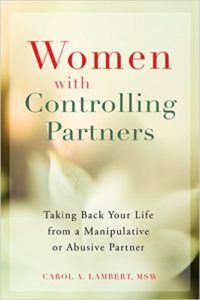
Carol Lambert’s publisher required a commitment to grow her social media presence before offering a contract. Connect on Social Media: You don’t have to be super-active on every platform. Pick one or two platforms where you’ll be most likely to find your target readers and get active there. Connect with readers but also those people who influence your readers—bloggers, other authors, tv and radio producers, journalists, etc. Share their great articles and shows, as well as your own.
- BLOG: Yes, blogging takes some time and focus but it is one of the best ways to connect with your peeps and develop a relationship. And this relationship isn’t just a one way communication where you spew out information, hoping people like it. Nuh-uh. You get to hear back from them and learn what they’re interested in when you invite comments on your blog. In addition, your blog will help Google and other search engines love you (and send visitors) as well.
- Speak: Publishers love to see a significant speaking schedule. It means that you regularly reach your target audience in an intimate way and a setting where they are likely to buy books.
-
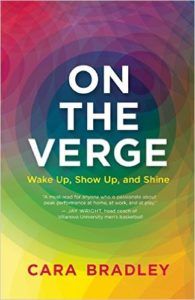
Cara Bradley grew her mailing list by 50%, hired a publicist and began blogging on the Huffington Post in order to make her platform appealing to publishers. Teach: Seminars, especially through organizations and companies offer a similar excellent opportunity for book sales. In fact, many author/trainers factor book sales into all their corporate trainings. This helps boost book sales and also make sure that participants have a nice takeaway they can use to remember what they learned, dive deeper and share with others. You can teach in person or remotely.
- Network: One of my most successful sales strategies has been to identify people who offer excellent programs that my people (authors and aspiring authors) need and which I do not offer. In my case, these are services like book marketing, business marketing and business building. Many times, these people offer affiliate programs and I get a percentage of sales I have generated (of course, it’s important to be up front with your community when you are receiving commissions). Most often, your affiliate partners or JV partners will be happy to promote your services and book in return.
I will say, strategy 7 is one to be careful about. You want to do your due diligence, research all programs the best you can, speak to people who’ve participated or become a participant yourself. Monitor how your folks benefited from or liked the program afterwards. If they had a less than stellar experience, you can give the provider feedback, but err on the side of dropping a program rather than hoping the presenter will change. If an affiliate program could be considered a conflict of interest in certain cases, make sure you don’t receive a commission for those clients.
Use Sustainable Strategies to Grow Your Platform and Get Published
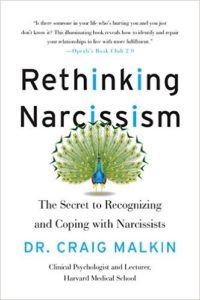
I use the word “Sustainability” often when speaking about platform building. There is nothing more frustrating than throwing money into social media, website, PR and hoping that a big advance or stellar book sales will pay back more than your investment.
The more you have income-producing opportunities already in place, the more any of your efforts can be sustainable from the outset. Your platform building contributes to the bottom line and, in turn, those income producing activities will naturally also result in book sales. This model will make book marketing more enjoyable, less stressful and sustainable.
When I see clients without a sustainability element, they often give up quickly because the activities that can generate book sales end up costing more money than they generate. Even clients who have stuck with it and gotten great PR end up with modest book sales (if they don’t have the sustainability element) compared to those who operate from a sustainable model from the outset.
Of course, these platform building strategies are meaningless without a solid book concept that speaks to a real need within a clear, significant target market and a well written book (or sample chapters). And you’ll want to go through the expected steps to write a book proposal as well. And be sure to download my free report: 10 Tips to a Book Proposal Publishers Will Love.
Be thorough and don’t rush these steps and you will increase your chance of getting your book published by a traditional publisher—and reaching lots of eager readers, as well.
Have any questions or a publishing story to share? Comment below.

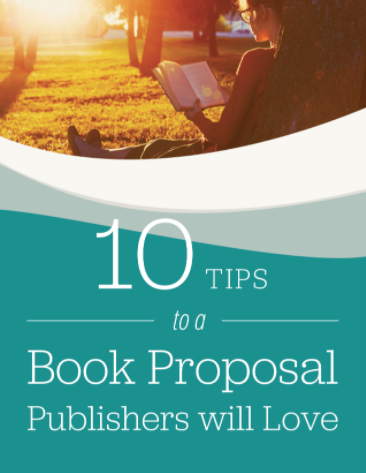
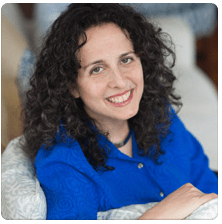

 Blogging Tip #2. Start Small and Experiment: You may have a longer term goal of blogging for a national news site or network. Starting with a blog on your own website allows you to experiment to see what readers respond to, what questions they have and what types of posts do well in terms of sharing and engagement. Starting with your own blog will also:
Blogging Tip #2. Start Small and Experiment: You may have a longer term goal of blogging for a national news site or network. Starting with a blog on your own website allows you to experiment to see what readers respond to, what questions they have and what types of posts do well in terms of sharing and engagement. Starting with your own blog will also: Blogging Tip #3: Think Big. After experimenting with your own blog, set a goal for one or two larger forums to approach:
Blogging Tip #3: Think Big. After experimenting with your own blog, set a goal for one or two larger forums to approach: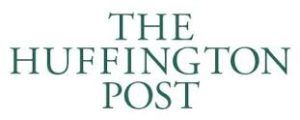 Blogging Tip #4. Connect with Other Bloggers and Pay it Forward. If you want to eventually write for the
Blogging Tip #4. Connect with Other Bloggers and Pay it Forward. If you want to eventually write for the  Invite your blog readers to share their experiences, posts their questions or offer their own opinions. In this way you develop a tribe
Invite your blog readers to share their experiences, posts their questions or offer their own opinions. In this way you develop a tribe




 In fact, I would still say, if you think you can interest a literary agent, that is still generally my recommendation if you want to traditionally publish. And, most of the time, to get a literary agent and get a publisher—in particular, a large trade publisher—one ingredient you need is a significant author platform (or online and/or offline following). However, the smaller and mid-size presses may not require quite as huge a platform—and could be a good fit for your book.
In fact, I would still say, if you think you can interest a literary agent, that is still generally my recommendation if you want to traditionally publish. And, most of the time, to get a literary agent and get a publisher—in particular, a large trade publisher—one ingredient you need is a significant author platform (or online and/or offline following). However, the smaller and mid-size presses may not require quite as huge a platform—and could be a good fit for your book.
 Tara Mardigan and Kate Weiler signed with
Tara Mardigan and Kate Weiler signed with  A client asked me today whether he should focus only on writing his book proposal or work on building his author platform at the same time. First, my advice to him, followed by my advice for you.
A client asked me today whether he should focus only on writing his book proposal or work on building his author platform at the same time. First, my advice to him, followed by my advice for you.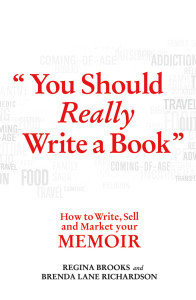 Here’s a great blog post, an interview with Literary Agent Regina Brooks that explains
Here’s a great blog post, an interview with Literary Agent Regina Brooks that explains  This interview with Martha Rhodes, author of 3,000 Pulses Later, explores many of the advantages Martha reaped in
This interview with Martha Rhodes, author of 3,000 Pulses Later, explores many of the advantages Martha reaped in 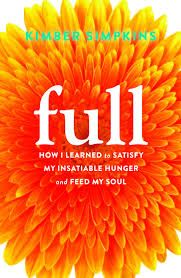 And just a couple of months after Kimber Simpkins self-published her memoir, Full, New Harbinger offered her a book deal, demonstrating that self-publishing can lead to a traditional book deal down the road–or even almost right away!
And just a couple of months after Kimber Simpkins self-published her memoir, Full, New Harbinger offered her a book deal, demonstrating that self-publishing can lead to a traditional book deal down the road–or even almost right away! 